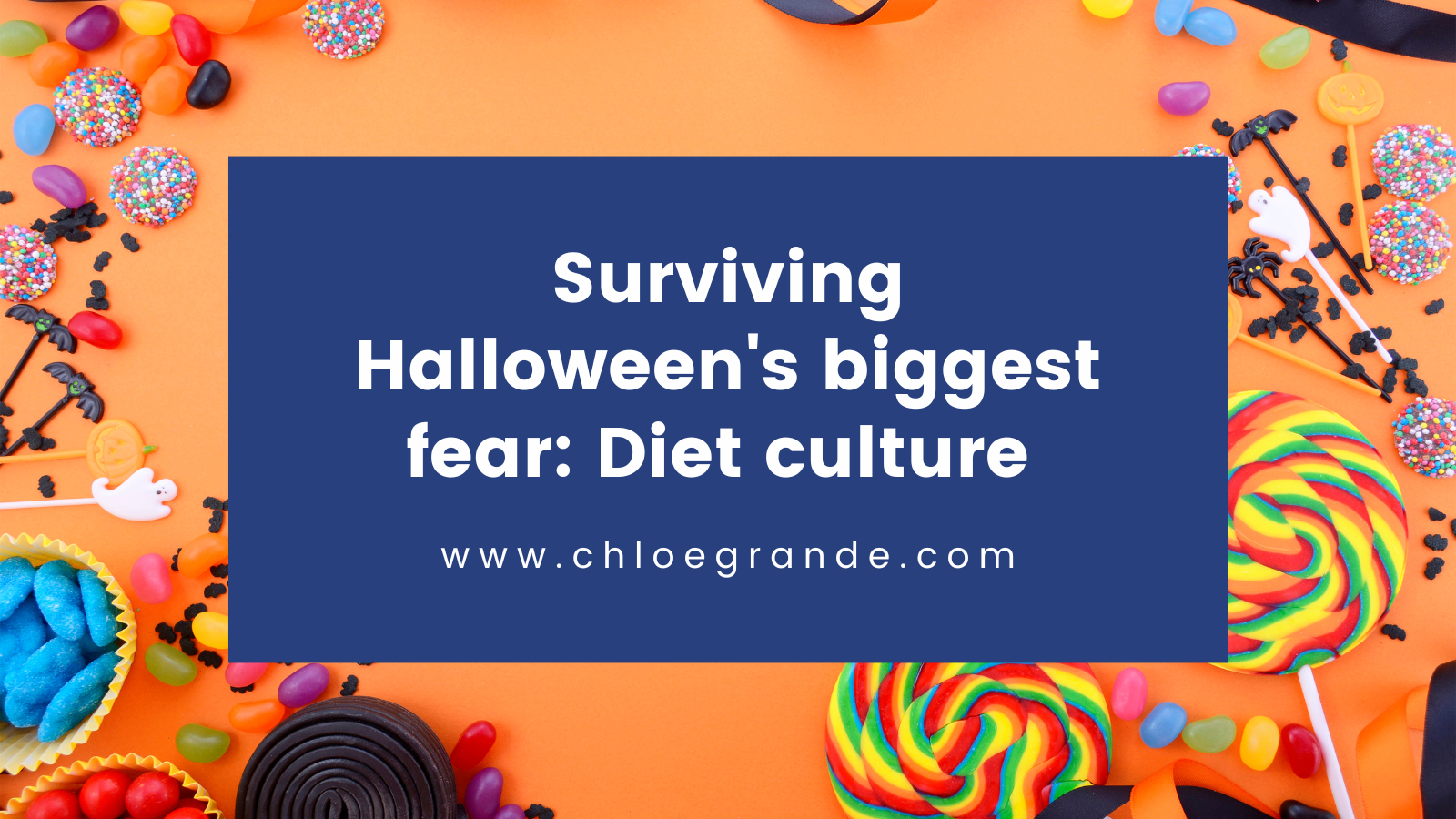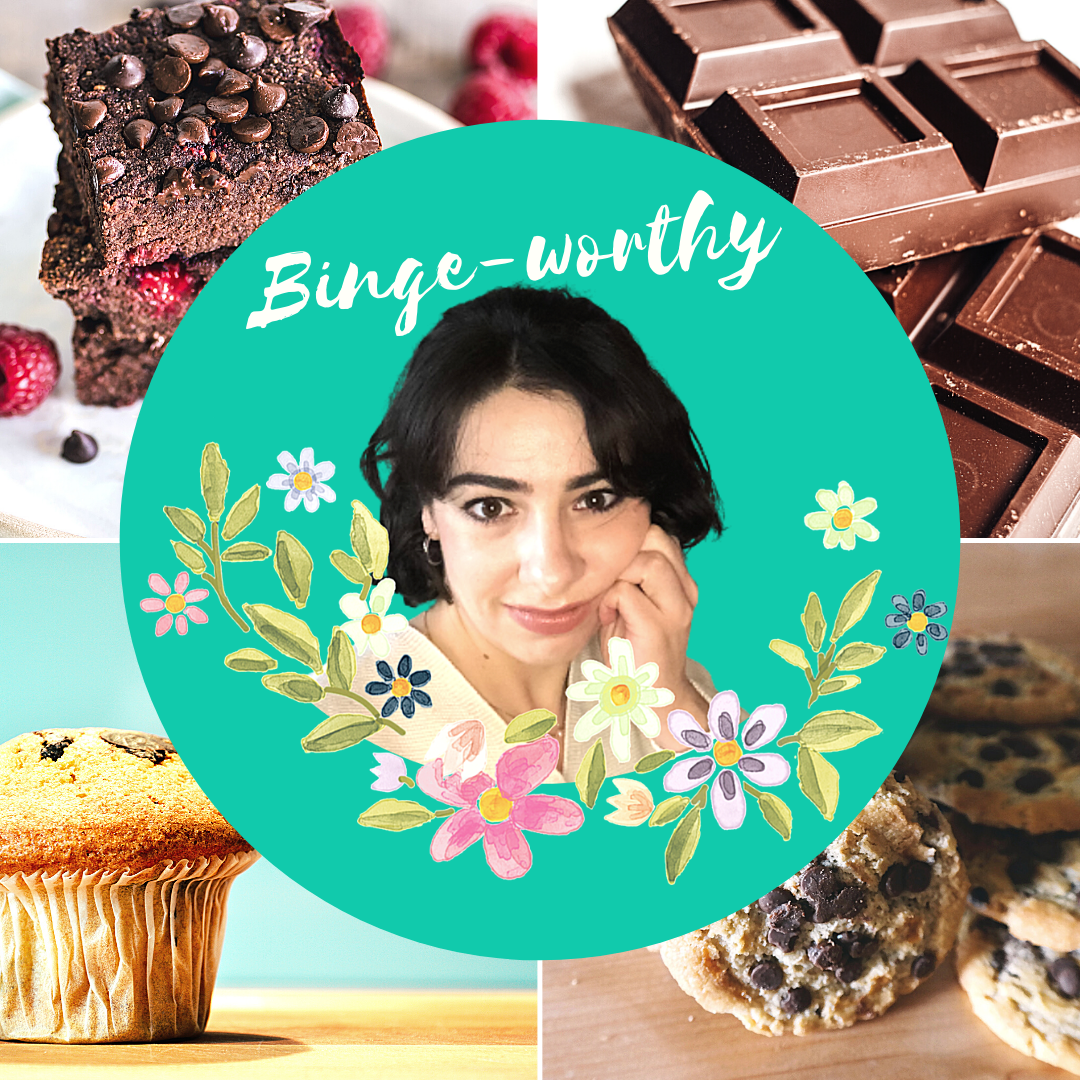I have vivid memories of Halloween when I was a kid. I grew up in a pretty “healthy” household, meaning there wasn’t always a lot of candy — dried fruit and granola bars were considered dessert. So when October 31st rolled around each year, it was like an all-you-can-eat candy buffet for me.
I felt as though this was my one chance to eat as much of it as I could. And once I started tearing open those shiny, colourful wrappers, it was hard to stop. I would often grab a small-size chocolate bar right before leaving for school.
But the measly two bites of Aero bar wouldn’t satisfy me. So I would turn to a Kit Kat bar, then maybe some Fuzzy Peaches to balance out the chocolate flavour, then another Aero or Kit Kat bar until I felt stuffed and uncomfortable. The ritual would repeat itself after school, always in secret.
Because of this all-or-nothing perception towards Halloween treats, I both welcomed and dreaded the holiday each year. It’s a tired game, though, to put your body through cycles of restricting and bingeing — and the emotional impact is brutal. I don’t recommend it.
I’m not alone in feeling triggered by the Halloween sugar rush — there are numerous articles written about preventing a binge episode during this time. My biggest learning has been to rebel against my eating disorder’s strict rules: I let the fear foods into the house and treat myself with compassion, rather than disgust, when indulging.
What's changed now
I pretty much always have chocolate laying around my house nowadays. This helps get rid of the scarcity mindset where I feel as though I have to consume it all in one sitting. Of course, it still happens every so often that I’ll polish off more chocolate than usual because sugar cravings are a very normal and real thing.
A mindset shift
I’ve learned that I don’t need to deserve certain foods. And I don’t need to restrict if I’m going to have a treat later in the day. That sort of thinking is exactly what leads to binge-eating: a binge is your body’s response to restriction. Instead, I resume my regular meal plan the next day, no matter what I ate the day before.
Reframing how I think about "junk" food
I try to refrain from thinking of food as a “guilty pleasure.” Food in itself has no morality. If you enjoy eating it and it tastes delicious, what makes that so shameful? It’s the same with saying you need to “work off” a snack or “get in a good walk” after munching through a bag of chips. (Read more about the word choices we make around food in my previous blog post!)
I hope that for everyone’s sakes, this Halloween isn’t as spooky as your eating disorder may make it out to be. If you aren’t used to having treats around, consider keeping the candy around past the festivities and getting used to its presence.
There’s also the aspect of Halloween that focuses on appearances, whether it’s dressing up to look cute, sexy or clever. I’d recommend checking out this article from the Meadows Ranch on dealing with any negative feelings that may come up. It’s full of great, actionable tips like dressing in a comfortable costume and challenging your intrusive thoughts.
Ultimately, surviving Halloween with an eating disorder is about knowing your triggers, having a plan and treating yourself sweeter than a bag of candy corn. You got this! ❤️



Well done, Chloe – all these insights are profound !
Thank you, I’m glad you found the post insightful!
Wow, this really opened my eyes to some of the challenges people living with ED face around Halloween! I wouldn’t have know otherwise. Thanks for also including the meadow ranch link, it complimented your blog very well.
I appreciate the feedback and kind words, thank you! It’s definitely a challenging time for people with EDs so the extra compassion from people like yourself makes all the difference.